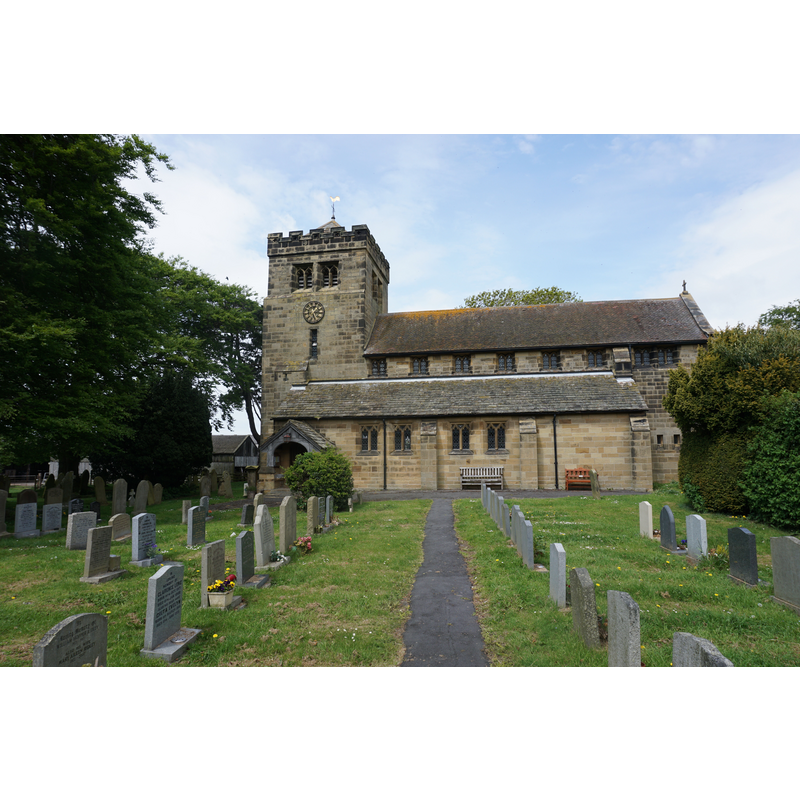Carlton / Carletun / Carletune / Carlton in Cleveland / Carlton nr. Middlesbough / Karleton in Clyveland

Image copyright © Bill Boaden, 2015
CC-BY-SA-2.0
Results: 1 records
view of church exterior - south view
Scene Description: the late-19thC church
Copyright Statement: Image copyright © Bill Boaden, 2015
Image Source: digital photograph taken 21 May 2015 by Bill Boaden [www.geograph.org.uk/photo/4497200] [accessed 17 December 2019]
Copyright Instructions: CC-BY-SA-2.0
INFORMATION
Font ID: 22484CAR
Object Type: Baptismal Font1?
Font Century and Period/Style: 15th century, Late Medieval
Church / Chapel Name: Parish Church of St. Botolph
Font Location in Church: [disappeared]
Church Patron Saint(s): St. Botulph [aka St. Botolph, Botolph of Thorney, Botulf]
Church Address: Carlton-in-Cleveland, Stokesley TS9 7DL, UK
Site Location: North Yorkshire, Yorkshire and the Humber, England, United Kingdom
Directions to Site: Located off (E) the A172 [aka Stocking Hill], 5-6 km S of Stokesley, 14-15 km S of Middlesbrough, on the northern slopes of the Cleveland hills
Ecclesiastic Region: Diocese of York
Historical Region: Hundred of Langbaurgh
Additional Comments: disappeared font? (the one from gthe church first documented 1483)
Font Notes:
Click to view
There is a multiple-place entry for this Carlton [variant spelling] in the Domesday survey [https://opendomesday.org/place/NZ5004/carlton/] [accessed 17 December 2019] but it mentions neither cleric nor church in it. The entry for this parish in the Victoria County History (York North Riding, vol. 2, 1923) notes: "Very little information is forthcoming with regard to the church of Carlton in Cleveland. It is first mentioned in 1483 [...] The [present] church of ST. BOTOLPH [...] was erected in 1896–7 [...] The only relic of antiquity inside the church is a 17th-century oak chest, but in the churchyard on the south side is the base with part of the shaft of a cross. [...] Graves, writing about 1808, describes the old church, which stood on the same site, as 'a small modern-built structure,' [...] and Ord forty years later calls it a 'singular and extraordinary' building, 'the steeple like a Norman tower, the nave and chancel little better than a shepherd's hut. [...] In 1878–9 this building was renovated and north and south transepts added, but it was destroyed by fire in October 1881. From that date till 1896 the building lay in ruins, though occasional services were held within the walls"; no font is mentioned in the VCH entry. The listing in Historic England [Listing NGR: NZ5067404537] covers only the modern church and mentions no font in it.
COORDINATES
UTM: 30U 615616 6033041
REFERENCES
- Victoria County History [online], University of London, 1993-. URL: https://www.british-history.ac.uk.